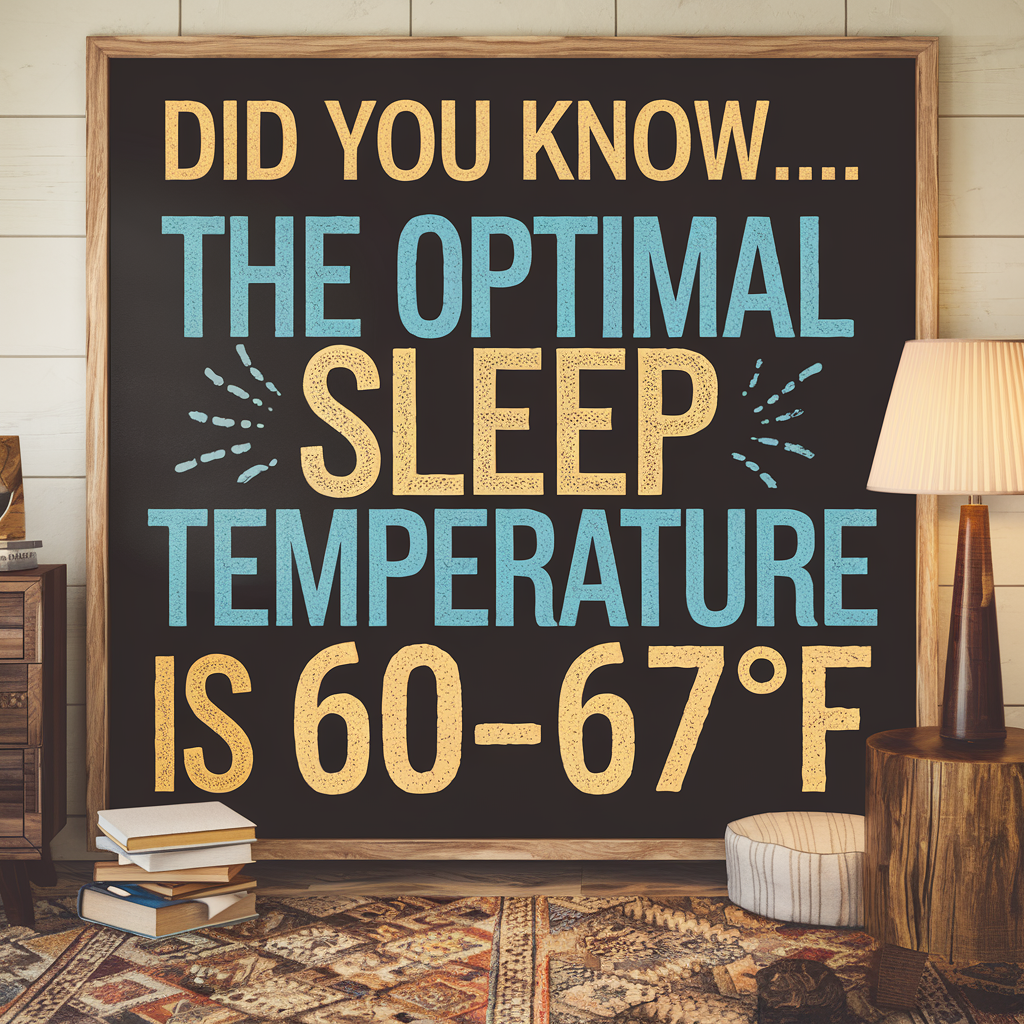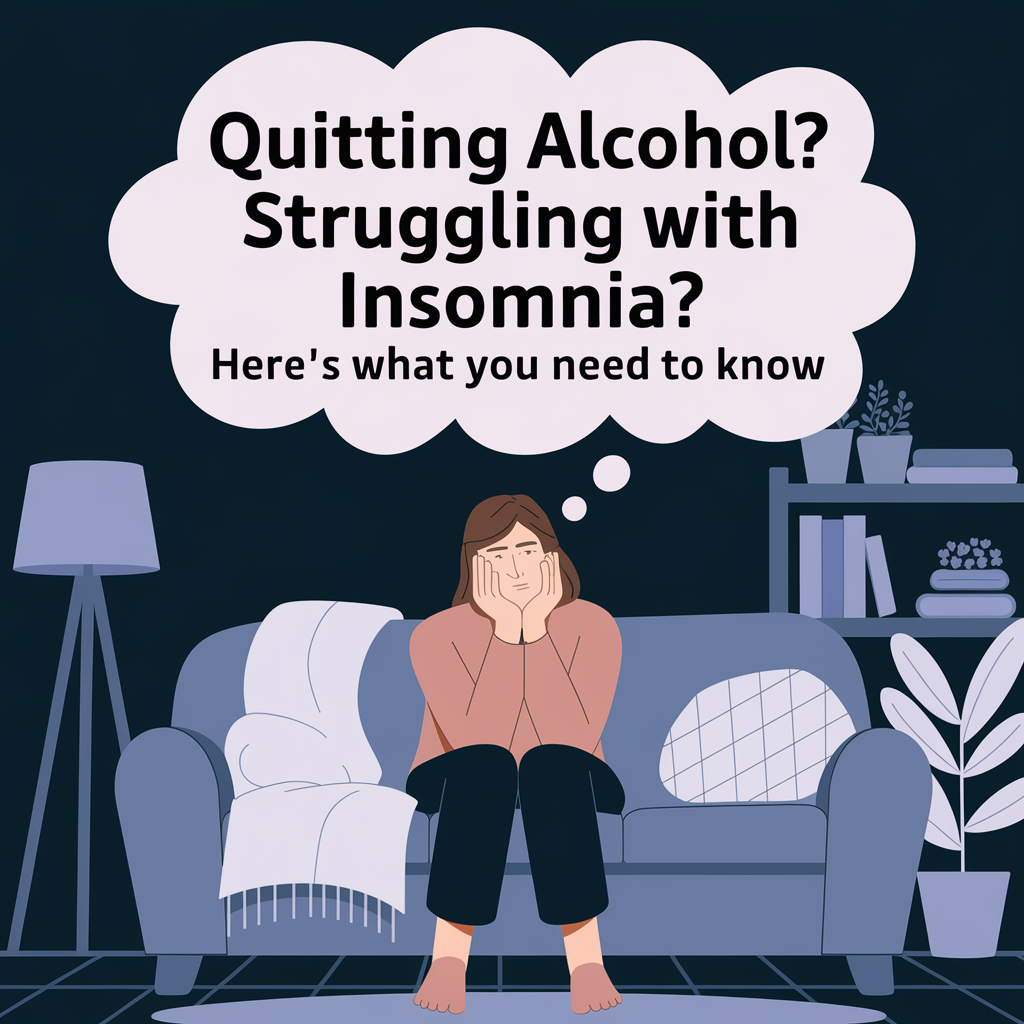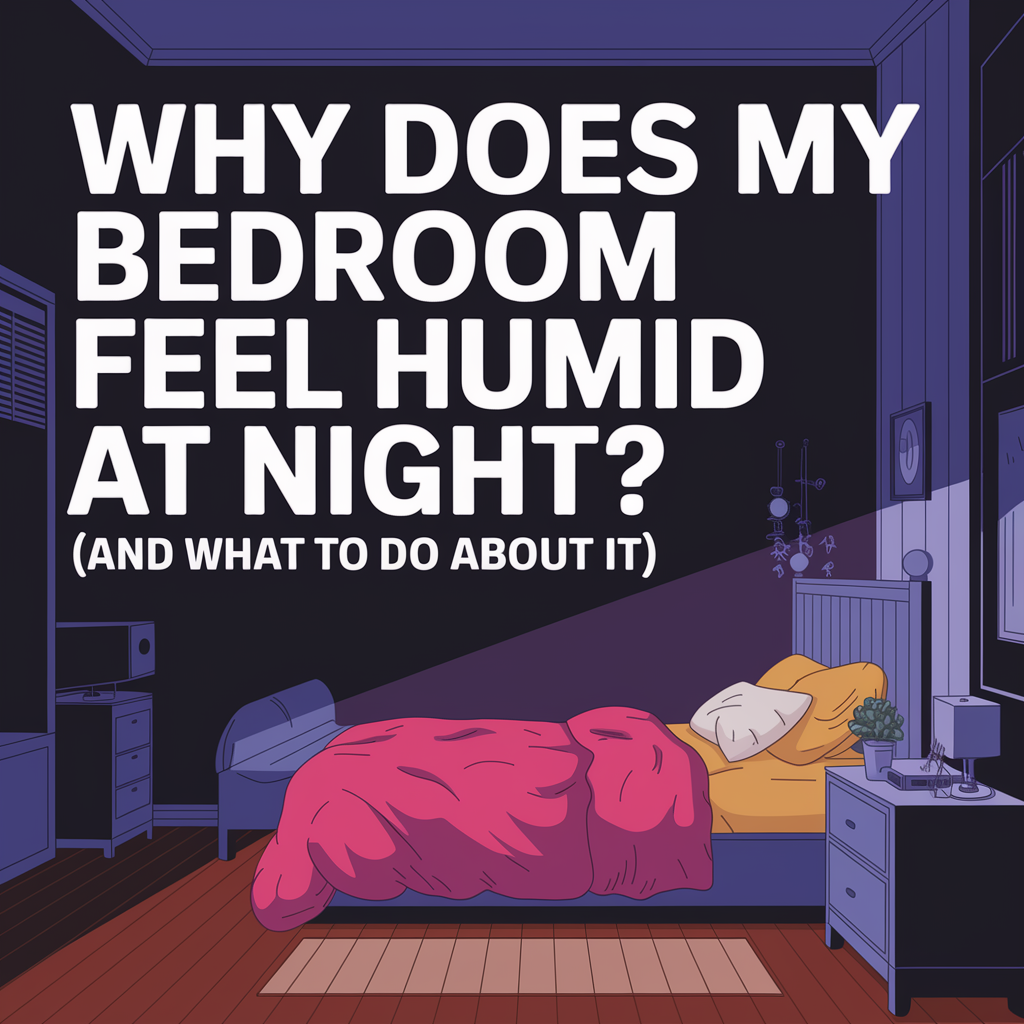
I Used to Wake Up in a Sticky Bedroom — Here’s What I Learned
If you’re like I was, you’ve probably asked yourself: why does my bedroom feel humid at night? I used to wake up feeling gross — sticky skin, damp pillows, and a heavy air that made it tough to breathe. I assumed it was just a summer thing or maybe poor sleep habits… but nope — it was humidity wreaking havoc on my rest.
Once I dug in and started testing things (including a cheap digital hygrometer I swear by now), I realized how much the air in my room was affecting my sleep. I started tracking, tweaking, and testing — and the difference it made? Night and day.
Let’s break down what’s really going on — and how to fix it.
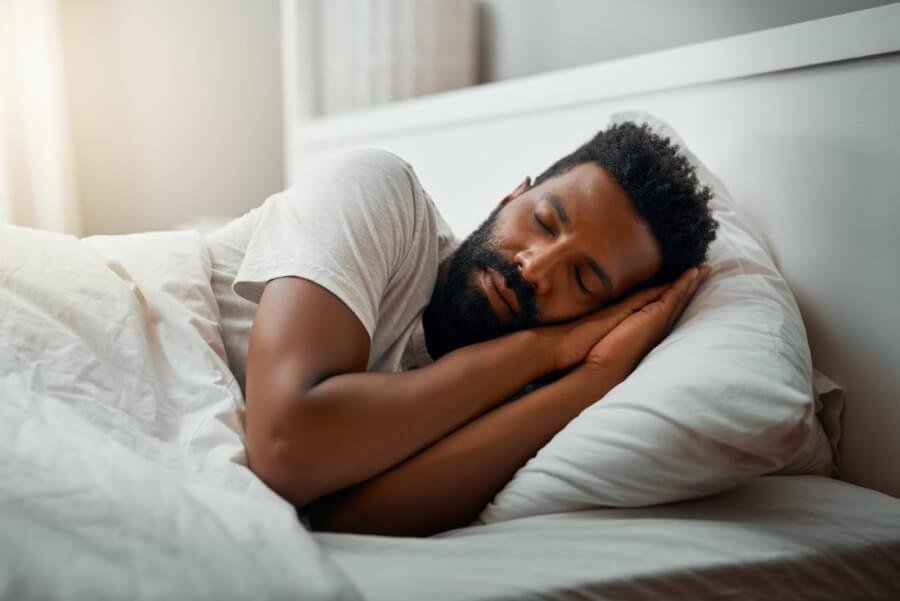
Why Does My Bedroom Feel Humid at Night?
There are a few sneaky reasons why your room gets muggy after the sun goes down. At night, we naturally release moisture through our breath and sweat. When your bedroom is sealed up tight — windows closed, doors shut, no airflow — that moisture builds fast. Add to that warm outdoor air, leftover steam from a hot shower, or even poor insulation, and you’ve got the perfect storm for a humid sleep space.
Most people don’t even realize this is happening — they just feel “off” or restless. But if you’ve ever tossed your blankets off halfway through the night or woken up with damp sheets, chances are humidity is the reason.
If you’re consistently waking up tired, sweaty, or congested, I’d suggest checking out why bedroom humidity ruins your sleep — it explains the deeper science behind it in a super easy way.
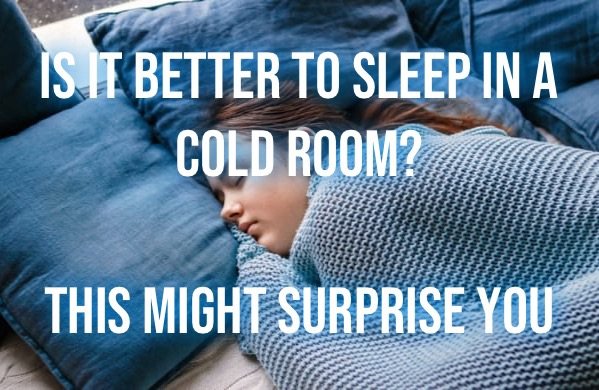
Signs You’re Sleeping in a Too-Humid Room
Sometimes it’s obvious. Other times, not so much. Here are clear signs your bedroom might be too humid at night:
- You wake up sweaty even when the room isn’t hot
- Your sheets or pillowcases feel damp in the morning
- You feel like the air is “thick” or hard to breathe
- Musty smells are starting to show up
- Mold shows on windows or corners of the wall
- You toss and turn more than usual
If you’re seeing any of these signs, don’t ignore them. They’re usually the first warning that your room’s air isn’t right — and your sleep is paying the price.
Ideal Bedroom Humidity for Better Sleep
Most people don’t think to measure humidity in the bedroom, but trust me — it’s a game-changer. The ideal bedroom humidity should sit somewhere between 40% and 60%. Any higher, and it can affect your breathing, skin, and how well you sleep.
When I first measured mine with this fast-refresh digital hygrometer (I got the 3-pack so I could monitor my bedroom, bathroom, and baby’s room), I was shocked. My room was hanging around 70% — no wonder I felt like I was waking up in a swamp.
A tool like that makes it easy to monitor trends, so you can know whether you need to take action or just make minor tweaks.

What Causes Bedroom Humidity at Night?
Several things may be quietly raising your room’s moisture levels — and many are easy to overlook:
- Poor airflow: If your room’s air doesn’t move, humidity lingers
- Closed doors/windows: Traps moisture from your body and breath
- Outdoor weather: Humid summer nights seep through walls and windows
- Hot showers at night: Steam spreads through the house
- Older homes: Poor insulation and drafty windows often let moisture build
Even something as simple as running your dryer without proper ventilation or using a humidifier too close to bedtime can change how your room feels at night.
How I Fixed My Bedroom’s Humidity Problem (Finally)
Once I figured out why my bedroom felt so humid at night, I tried everything: cracking a window, lowering my AC, even switching out my bedding. Some things helped, others didn’t.
The game-changer? I grabbed a 21-pint dehumidifier for my bedroom — not the bulky kind either, just one sized for rooms up to 1600 sq. ft. with smart drainage. Within a week, the air felt lighter, the dampness vanished, and I started waking up actually rested.
If you’re battling that same sticky air, you seriously need to try this. It even has an intelligent humidistat and washable filter — perfect for long-term bedroom use.
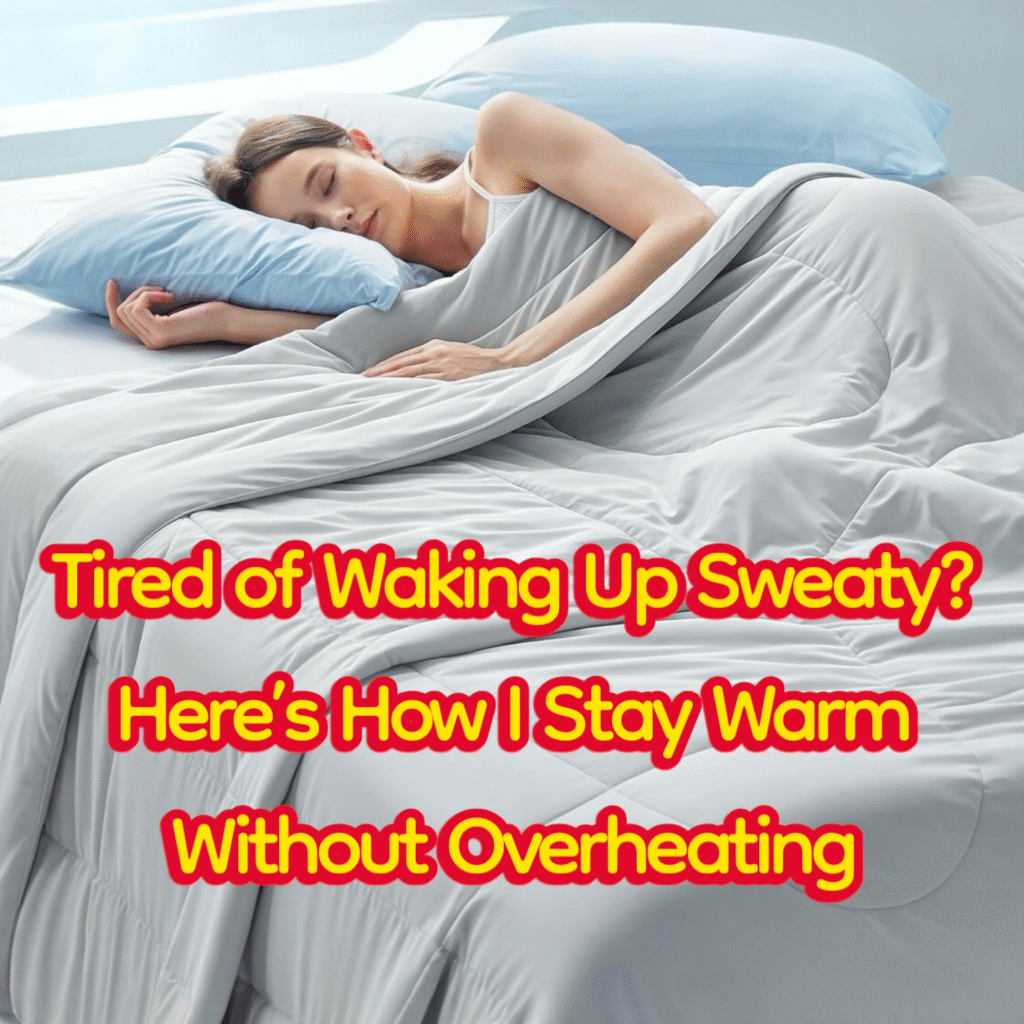
Should You Sleep With a Dehumidifier Running?
Short answer: yes. A quiet, energy-efficient dehumidifier can be a major sleep upgrade. If your room consistently sits above 60% humidity, sleeping with one on will help:
- Remove excess moisture from your breath and sweat
- Keep allergens and mold at bay
- Create a more breathable, cooler-feeling space
Since I started running mine at night, I haven’t once woken up sweaty or congested. It’s as essential to my routine now as blackout curtains or a good pillow.
And if you haven’t already, check out why bedroom humidity and sleep are so closely tied — I wish I’d known this stuff sooner.
Could Your Bedding Be Making the Problem Worse?
Turns out, your blanket or comforter could be trapping moisture, making the whole humidity thing worse. I used to pile on the layers in the name of comfort — not realizing those materials were just holding in sweat.
Swapping to a cooling comforter made for hot sleepers made a massive difference. It breathes, it’s soft, and it doesn’t trap moisture like cotton or heavy polyester blends.
Also, ditch fleece throws or flannel in summer — they soak up sweat and release it into the air, which only adds to that damp feeling.

Cracking a Window at Night: Good or Bad?
This one’s tricky — opening a window can help if outdoor air is cooler and drier, but it can also make things worse if it’s humid outside.
What worked for me was timing it: I’d crack the window early evening to flush out stale air, then shut it once temps dropped. I paired this with my quiet box fan (linked here in our full guide to best fans for sleeping noise), and it created a perfect combo of airflow and humidity control.
Basically, let the air flow — just don’t let in more moisture than you’re trying to get rid of.
Don’t Forget the Bathroom Steam
Here’s something sneaky: taking hot showers at night raises humidity in nearby bedrooms more than people realize — especially if your home isn’t ventilated well. Steam lingers, seeps into walls, and drifts into your room.
I started using the exhaust fan every time I shower and leaving the bathroom door open afterward, not during. That way, the moist air escapes upward, not toward my bed.
It sounds simple, but combined with a dehumidifier and better airflow, it helped drop my nighttime humidity by over 10% (based on the readings I tracked with this digital hygrometer I use daily).
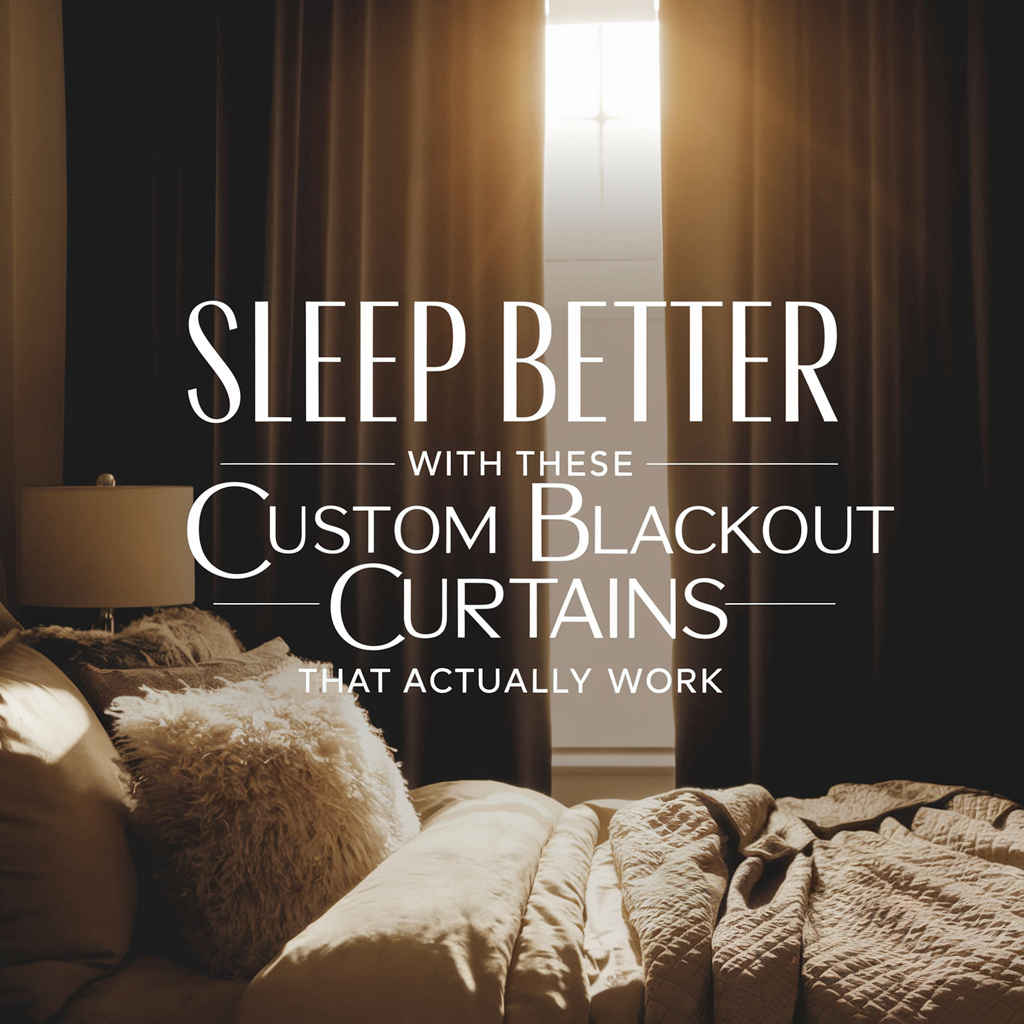
What Humidity Level Should Your Bedroom Be at Night?
Experts (like the EPA) recommend keeping indoor humidity between 30% and 50%. Once it creeps above 60%, especially while you’re trying to sleep, it can:
- Disrupt your body’s natural cooling process
- Lead to night sweats or clammy sheets
- Encourage mold growth and dust mites
I started tracking mine nightly with a digital hygrometer, and it was a total eye-opener. Some nights it would spike to 70% before I even realized I was uncomfortable.
This is one of the reasons I wrote about bedroom humidity and sleep — because most people don’t even think about humidity when they’re tossing and turning.
If You’re Hot but the Air Feels Wet… Here’s What to Do
This was my exact issue: I’d lower the thermostat, still feel sticky, and wake up sweaty. The problem wasn’t just heat — it was moisture in the air trapping that heat against my skin.
Here’s what helped me get it under control:
- Run a dehumidifier all night long
- Use a cooling blanket instead of layers (this one’s my go-to: best cooling comforter for hot sleepers)
- Set my smart thermostat to 68°F (you can read about how I use my WiFi thermostat to sleep better)
You might also want to double check that your room isn’t too sealed — even just cracking the door open can help airflow.

Don’t Just Guess — Track Your Bedroom Environment
I didn’t get results until I started tracking everything: temperature, humidity, airflow, and even how many times I woke up.
I now swear by a hygrometer and smart thermostat combo — seriously, game-changing. And when I combined it with blackout curtains and my favorite fan (you know, the loud kind that drowns out noise), my sleep finally started to turn around.
And if you’re wondering why your bedroom feels humid at night, this isn’t something you can afford to ignore. Moisture is sneaky — it affects comfort, air quality, even mental clarity.
Take control of your sleep space, and your sleep will follow.
As an Amazon Associate we earn from qualifying purchases through some links in our articles.
